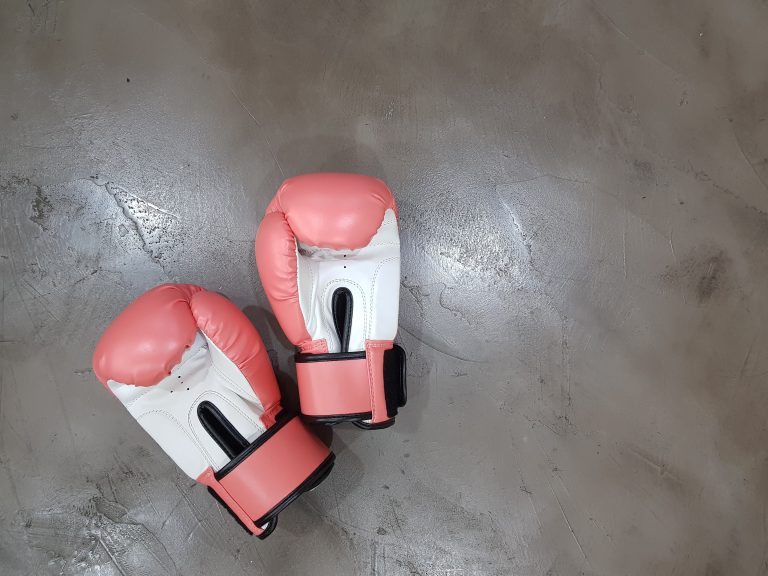What are the Benefits of Regular Karate Practice?
Karate is a martial art that has been around since the early 19th century, originating in Okinawa and developed in mainland Japan later. It is a traditional martial art that is practiced throughout the world today and is renowned for its benefits in physical exercise, self-defense, and mental discipline. In this blog post, we will discuss the many benefits of regular karate practice, going into detail about how it helps to improve physical and mental health.
Physical Benefits of Karate
Karate can provide a number of physical benefits that can help to improve overall health. Firstly, karate is an excellent form of exercise, as it utilises all muscle groups for a full body workout. It is an aerobic exercise, meaning it increases heart rate and improves cardiovascular health. Other physical benefits include:
- Improved flexibility and balance
- Increased coordination and agility
- Increased speed, power, and endurance
- Weight loss
- Improved muscle strength and tone
Karate also has a number of self-defense benefits that can help to keep people safe and increase their confidence levels. By lifting weights or running, it is possible to increase physical strength, but karate teaches people how to use their body in an effective way. It teaches techniques such as striking, kicking and blocking, as well as awareness of one’s own body and an opponents movement. This self-defense training can be applied in a range of scenarios, from low level street self-defense to high level martial arts competition.
Mental Health Benefits of Karate
Karate also has a number of benefits for mental health, such as increased focus and concentration. Training in karate requires intense focus and concentration, as well as the ability to remember details and instructions. This means that over time, practitioners will become better focused on tasks and more able to stay on task for longer periods of time.
Karate can also help build self-confidence, as it provides a sense of accomplishment. Training involves mastery of skills, including punches, kicks and blocks. By mastering these skills, practitioners gain confidence in their ability to defend themselves if needed and to excel in competitions. In addition, the training atmosphere encourages participants to strive for excellence, allowing them to develop a sense of pride in the positive aspects of their life.
Karate also helps improve discipline levels, as it requires participants to show respect to their instructors and fellow sparring partners. Practitioners must adhere to rules and regulations during training sessions, which helps them learn the importance of discipline. The discipline that is learnt through karate can be applied to other areas of life, such as getting up on time in the morning or adhering to a strict diet regimen.
Karate can also help with stress relief. Physical exercises help to reduce feelings of stress by releasing endorphins in the brain which act as natural mood relievers and make us feel happier. The physical movements involved in karate help regulate breathing, activating our parasympathetic nervous system which produces a calming effect on the body and mind.
How to Incorporate Karate into Your Life
To start practicing karate regularly, it’s important to find an instructor that you’re comfortable with, who will actively teach you the techniques that you need with patience and encouragement. It’s also important to find a suitable dojo (karate school) where you can train regularly and join regular classes or even take part in competitions. Start slowly and take your time to learn the techniques properly before progressing further and becoming more serious about karate.
If you’re feeling uncertain about taking up karate classes, you could start off by reading books or watching instructional videos online. This way you could slowly familiarise yourself with different techniques before taking classes or sparring with other people. If there’s no dojo near you, you could always practice some basic techniques at home alone or with friends who are interested as well. As they say, practice makes perfect!
Conclusion
Karate is an ancient martial art that provides a range of physical and mental health benefits. It is an excellent form of aerobics exercise that develops coordination, agility and speed. It also provides self-defense benefits, helping practitioners learn how to defend themselves if necessary. Furthermore, regular karate practice can promote increased focus and self-confidence, improved discipline levels and stress relief. To experience these benefits for yourself, it is important to find an instructor who you’re comfortable with and a dojo where you can train regularly. So don’t delay any longer – find your nearest karate dojo today!
The Benefits of Regular Karate Practice
Karate, a Japanese martial art form, is one of the most popular forms of martial arts in the world today. Karate involves striking, kicking, grappling and defensive techniques. Apart from its martial arts aspect, karate is also an excellent form of physical exercise that has numerous mental and physical health benefits. Here are some of the most frequently asked questions about the benefits of regular karate practice.
1. What are the Physical Benefits of Regular Karate Practice?
Karate is a total body workout that helps build muscle strength, endurance, and flexibility. It also helps to improve cardiovascular health, which includes reducing the risk of heart disease, high blood pressure, and stroke. Regular karate practice can also help to improve coordination, balance, and reaction time. These physical benefits of karate practice can make you stronger, more flexible, and physically fitter.
2. What are the Mental Benefits of Regular Karate Practice?
Apart from physical benefits, regular karate practice can provide several mental health benefits as well. One of the most significant benefits is stress relief. Karate practice can help to reduce stress and anxiety levels, which can benefit your overall mental wellbeing. Regular practice can also help to increase focus, discipline, and concentration. Karate also teaches self-control and goal-setting, which can build self-confidence and self-esteem.
3. Can Karate Practice Help to Improve Self-Defense?
Yes, karate practice can improve self-defense skills. In karate, you learn how to anticipate and avoid potentially dangerous situations, as well as techniques to defend yourself if you need to. Karate can also help to build mental toughness, which can be useful in stressful or dangerous situations.
4. Can Karate Practice Help to Improve Posture?
Yes, regular karate practice can help to improve posture. Karate involves various techniques that require good posture, balance, and stability. As you practice, you will develop good habits that can improve your posture both inside and outside of karate practice.
5. Are There Any Age or Gender Restrictions for Karate Practice?
Karate can be practiced by people of all ages and genders. Karate can be modified to suit different skill levels, physical abilities, and ages. Many karate clubs provide classes for children, adults, seniors, and individuals with disabilities. Karate is also an inclusive sport, with participation from both males and females.
6. Can Karate Practice Help with Weight Loss?
Yes, regular karate practice can promote weight loss. Karate involves substantial physical activity that burns calories and helps to build muscle. Regular karate practice can help you to lose weight, increase your metabolism, and build lean muscle mass.
7. What Equipment is Required for Karate Practice?
To practice karate, you need very little equipment. The primary equipment required for karate is a gi, which is a traditional training uniform. Depending on the level and skill, you may also need additional equipment, such as protective gear, sparring equipment, or weapons, which are additional parts of karate practice.
8. How Do I Get Started with Karate?
To get started with karate, you need to find a reputable karate club or dojo in your area. Look for an instructor with proper training, certification, and experience. Once you find a good dojo, you can start attending classes and building your skills.
Conclusion
Karate is an excellent form of exercise that provides numerous physical, mental, and emotional benefits. Regular karate practice can help to improve physical fitness, reduce stress, and improve overall wellbeing. Whether you are looking to improve your self-defense skills or simply looking for a fun and challenging workout, karate can be an excellent choice. So, if you are considering starting with karate, go ahead and start reaping the benefits!
Inhaltsverzeichnis





